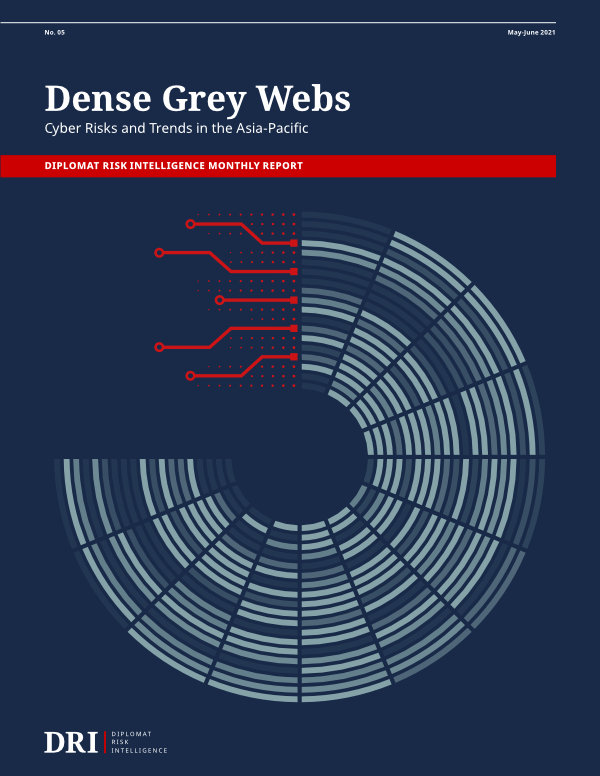| Welcome to the latest issue of Diplomat Brief. This week our top story looks at how Afghans – especially women – are scrambling to deal with the Taliban’s rapid takeover. We also have an interview with American journalist Geoffrey Cain on the reality of daily life in China’s Xinjiang region. |
| Story of the week |  | SOCIETY What Price Would Afghans Have to Pay for Peace?What Happened: Nearly 20 years after their regime was ousted by the U.S. military, the Taliban re-entered Kabul on August 15. Since then, panic has ruled the city. Terror, uncertainty, and shock are the prevailing emotions on the streets of Kabul. Many Afghans are sheltering in their homes, afraid to go out in public. “The Taliban has released a lot of prisoners on the streets,” one Kabuli said. “We can’t tell who is Taliban and who is a petty criminal.” No one is sure what the Taliban will do next, but – of the sources The Diplomat spoke to – no one trusts their promises of an inclusive government that respects women’s rights. Our Focus: “We were not expecting for the U.S. to hand over power to the Taliban like this. No requirements, nothing. They have handed our country the way you hand over a book or a bottle of water,” a female MP in Afghanistan told The Diplomat. “The Taliban have said you can carry on as usual, but I don’t trust them. We were happy for the war to end, but we didn’t expect the end to be like this. We were hoping [for a] power share with the government.” What Comes Next: If the Taliban takeover marks the end to Afghanistan’s decades of war – and that’s far from certain – then peace has come at a heavy cost. The Taliban came to power by force, not by the choice of the Afghan people, and they have a long history of killing the people they claim to govern. Afghans The Diplomat spoke to are still hoping that the international community can help influence the shape of the Taliban’s eventual government, by using the leverage of international donations (which provide up to 80 percent of the Afghan government budget). Read this story |
| Behind the News | INTERVIEW Geoffrey CainGeoffrey Cain, author of The Perfect Police State: An Undercover Odyssey Into China’s Terrifying Surveillance Dystopia of the Future: “What makes life in Xinjiang so foreboding is that the police have seized on new advances in artificial intelligence, deep neural networks, facial and voice recognition, and biometric data collection to establish the all-seeing eye. Every person in Xinjiang is documented down to their genetic makeup, the sound of their voice, and whether they enter their homes through the front door or the back.” Read the interview |
| This Week in Asia | Northeast Asia The Paralympics Begins in TokyoThe Paralympic Games opened on Tuesday in Tokyo. While they might lack the spotlight of the Olympic Games, the Paralympics will bring many of the same challenges for the host city, from pandemic management to financial burdens. Meanwhile, the people of Japan are still untangling the complex emotions – from pride to anger – elicited by the Olympic and Paralympic effort. Find out more | South Asia Nepal Scrambles to Bring Its Citizens Home From AfghanistanAfter the fall of Kabul, countries around the world have been working frantically to evacuate their nationals. Nepal has more at stake than most. A sizable population of Nepalis worked for U.S. defense contractors or foreign embassies in Afghanistan. These men were an often-invisible but essential element of the U.S. war effort – now they risk getting left behind, especially as many were undocumented workers. Find out more | Southeast Asia Malaysia’s New Prime Minister Settles InAfter mounting calls for change, Malaysia finally has a new prime minister: Ismail Sabri Yaakob of UMNO, the deputy PM under the previous government. Ismail’s coalition, however, is not much more stable than the one cobbled together by his predecessor. If he wants to stay in power longer, Ismail will have to make good on promises to achieve “cross-party cooperation” to expand his support in Parliament. Find out more | Central Asia Russia Stoking Fear of Militants Among Afghan RefugeesRussia’s President Putin over the weekend pushed the message that Central Asian states need to be concerned about “militants under the guise of refugees” in an effort to dissuade the region from assisting with the U.S. evacuation. Nevertheless, Kazakhstan, Tajikistan, and Uzbekistan are reportedly assisting the U.S. in flying thousands out of Afghanistan. Find out more |
| Word of the Week | SOCIETY طالبانTaliban, the name of the Islamist militant group that seized control of Afghanistan in recent weeks, literally means “students” in Pashto. Find out more |
| Webinar | The Diplomat Asks Where Does the China-India Border Dispute Stand?Over the past months, China and India have continued the slow process of disengaging along sections of their disputed border in Ladakh. How do things stand along the border today? Join us on September 2 at 8 a.m. U.S. Eastern time for an expert overview of the past, present, and future of the Sino-Indian border dispute, and the implications for China-India relations writ large. Sign up for the webinar |
|  |




